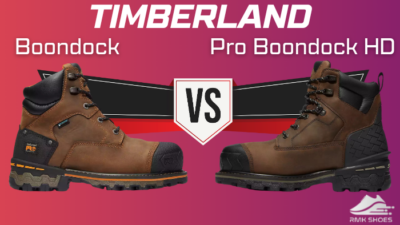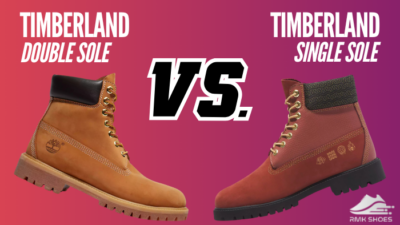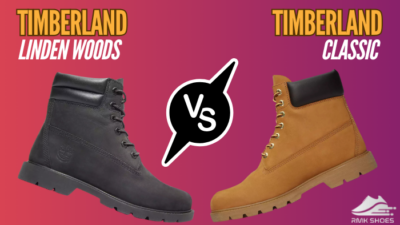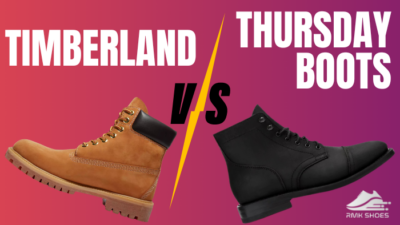Regardless of the latest entrant in shoe manufacturing, On Running has become one of the most prominent shoe brands and is praised by millions of shoe enthusiasts.
Among On’s several shoe lineups, Cloudflow and Cloudswift have secured their place with many unique features and characteristics.
But while choosing between these shoes, you must consider several aspects to pinpoint the most appropriate shoe for your running needs.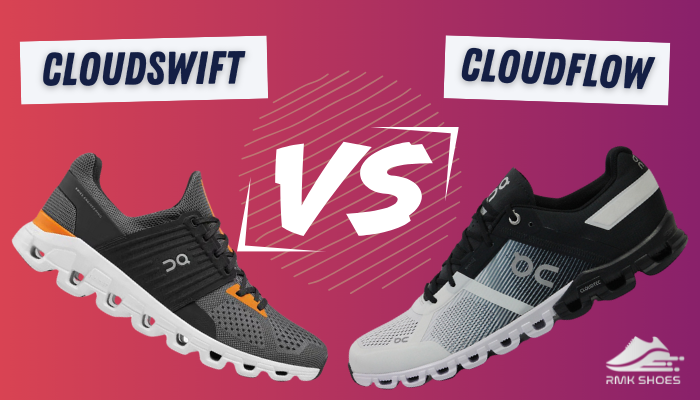
In this comparison, I will compare Cloudswift and Cloudflow and track down the most suitable shoe based on several parameters.
Without further ado, let’s begin!
A Quick Overview of Cloudflow and Cloudswift
Both Cloudflow and Cloudswift shoes are designed with comfort in mind. However, some aspects set them apart and place one over the other.
Cloudflow
On Running introduced the original Cloudflow in 2016. Which instantly became popular among neutral runners due to its perfect balance of comfort, responsiveness, and versatility.
This lightweight daily training features the proprietary Cloudtec elements for cushioning and the Helion™ for a responsive ride.
Over the years, On launched several versions of Cloudflow, and currently, Cloudflow 4 dominates the footwear industry with enhanced comfort and flexibility.
The following are the different versions of Cloudflow.
| Model | Release Year | Special Features |
|---|---|---|
| Original Cloudflow | 2016 | Lightweight daily trainer with Helion foam |
| Cloudflow 2 | 2018 | An updated upper with better breathability |
| Cloudflow 3 | 2020 | Softer Helion foam |
| Cloudflow 4 | 2023 | Softer midsole and more flexible upper |
Cloudswift
The journey of the Cloudswift lineup was initiated in 2019 when On first introduced the urban-inspired running shoe for agility and quick transitions.
Sneakerheads and shoe enthusiasts praise this lineup because of its responsiveness, lightweight design, and stylish look.
The Cloudswift prioritizes a snappy feel and quick transitions during long walks and casual runs.
On Cloud has already released three versions from this lineup, each with unique features and characteristics.
Following are the Cloudswift shoes with the release years and improvements.
| Model | Release Year | Special Features |
|---|---|---|
| Original Cloudswift | 2019 | Helion super foam |
| Cloudswift 2 | 2021 | Updated upper for enhanced breathability |
| Cloudswift 3 | 2023 | Firmer Helion foam for increased durability |
Attribute Comparison of Cloudswift and Cloudflow
Due to the distinct lineup, both shoes feature unique materials and features. They also differ in weight, comfort, fit, sizing, stability, breathability, and durability.
It’s easier to understand all the divergences by comparing the recent models from both lines.
So, consider the subsequent table to determine the major and minor differences between Cloudswift 3 and Cloudflow 4.
| Attribute | Cloudswift 3 | Cloudflow 4 |
|---|---|---|
| Upper | Breathable engineered mesh | Engineered woven upper |
| Insole | Removable sockliner | Removable insole |
| Midsole | CloudTec®, Dual-density Helion™, Speedboard® | Dual-density Helion™, spoon-shaped Speedboard® |
| Outsole | Durable rubber over the pod's | Closed channel rubber outsole |
| Comfort | More comfort on long runs | Firm and responsive |
| Weight | 11.3 oz (320g) | 8.3 oz (235 g) |
| Size | Regular | Regular |
| Fit | True to size | True to size |
| Heal-to-Toe Drop | 5 mm | 8 mm |
| Stack Height (heel) | 33.1 mm | 31 mm |
| Stack Height (forefoot) | 28.1 mm | 23 mm |
| Breathability | High breathability | Well perforated |
| Durability | Very durable | Very durable |
| Stability | More stable | Less stable |
| Price | $160 | $160 |
| Best for | Long walks, daily wear, casual runs | Long distances, speedwork, cross-training, tempo runs |
6 Key Differences Between Cloudswift and Cloudflow
Along with several similarities, both shoes also have various dissimilarities that you already noticed in the above attribute comparison chart.
But the specs table is not enough to compare these two great shoes. Hence, I am sharing my experience of using these shoes.
Following are the major differences between Cloudswift 3 and Cloudflow 4.
1. Upper: Design & Materials
While the Cloudswift features an aggressive and performance-oriented look, the Cloudflow’s silhouette is sleeker and more streamlined.
The engineered mesh upper of the Cloudswift 3 provides excellent breathability and support.
Moreover, there is some TUP coverage for assisting the lacing system (it acts like a cage for the lacing) and providing additional support.
The On logo is visible on both sides and the pull tab.
On the contrary, Cloudflow features an engineered woven upper that is lightweight and breathable.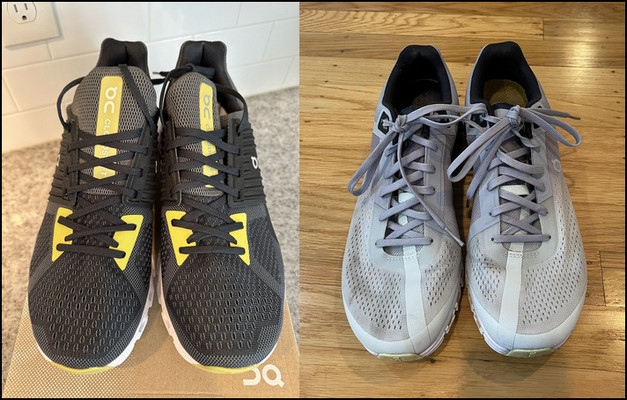
Surprisingly, Cloudflow is made with almost 75% recycled polyester, and the total recycled content is around 25%. So, if you care about eco-friendly producers, this is a great choice.
The knit heel collar and tongue of the Cloudswift are moderately sharp. These abrasive materials can cause blisters during extended wearing or fast-paced runs.
I was expecting that materials will soften over time. But, after completing 50 miles, these materials still cause trouble, meaning the break-in period is much longer than expected.
Conversely, the thin tongue of the Cloudflow is excellent for breathability and flexibility.
Unfortunately, this was a downside for me. While running more than 10 miles, this thin tongue cannot hold the lacing and causes extra pressure on the upper feet.
Both shoes have several colorways to match any style and outfit. Following are the available colorways for men’s and women’s.
| Shoe Model | Materials | Colorways |
|---|---|---|
| Cloudswift 3 | Engineered mesh and a zonal knit upper for a universal fit. | Shark | Hay, All | Black, Ivory | Flame, Denim | Midnight, Alloy | Glacier, Hunter | Safari, Ivory | Black, Magnet | Wisteria |
| Cloudflow 4 | Lightweight woven upper for a snug fit and breathability. | Glacier | Chambray, Black | Storm, White | Hay, White | Sand, Black | White, Quartz | Flame |
Both shoes feature a unique design and a secure fit. But Cloudflow is leading in this section due to the eco-friendly materials and its next-gen woven upper.
2. Midsole and Outsole
It’s essential to know what a shoe offers for the underfoot to get the best comfort and high performance while running or walking.
For the insole, both shoes feature a removable sockliner for supporting the arch. This insole is responsible for additional comfort and is easy to clean, meaning maintenance is effortless.
Now, let’s discuss the fascinating sole techs of On Running.
The On Cloud shoes are instantly recognizable due to the proprietary CloudTec technology, which is small tubular sections of foam that contact the surface during each step.
These cloud pods absorb impact and propel the runner forward with every stride.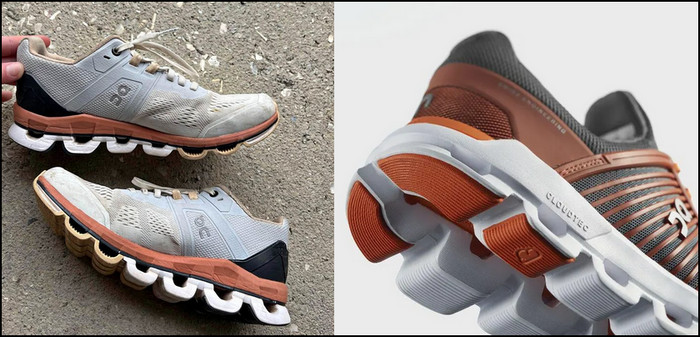
For the midsole, both shoes utilize the same dual-density Helion superfoam. This foam consists of two different materials.
The midsole of the Cloudswift is rigid and stable without sacrificing flexibility. Conversely, the midsole of Cloudflow is more agile and more suitable for long distances.
The discussion is incomplete without mentioning the built-in Speedboard that sits within the midsole and assists in forward momentum without burning much energy.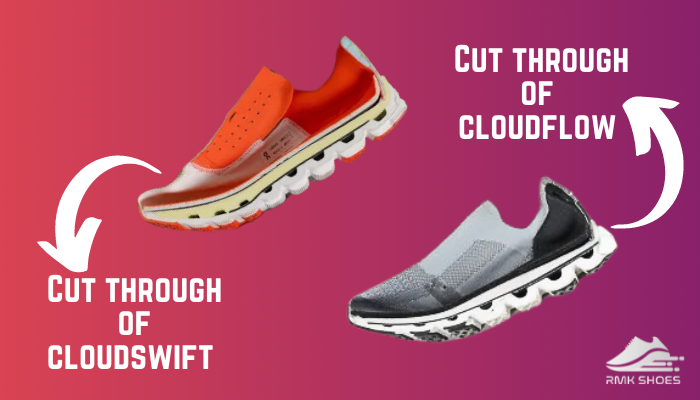
Both shoes feature rubber pads under the midsole or bottom of the cloud pods, which are responsible for traction.
The outsole rubber of Cloudswift provides exceptional grip on various surfaces like road and cement. I never slipped wearing this shoe; it feels very stable, even on wet surfaces or uneven terrain.
For the outsole of Cloudflow, the experience was a little bit different.
On utilizes grooves cut and abrasive foam under the midfoot for traction, but it isn’t as grippy as the outsole of Cloudswift and often feels unstable on challenging surfaces.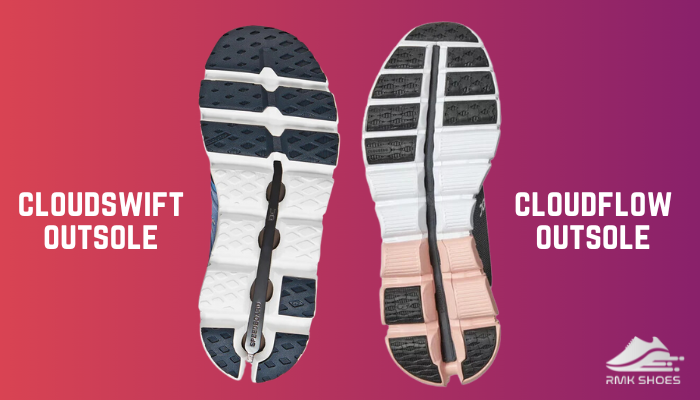
Both shoes are made for different purposes, and the differences are visible in the sole section. However, Cloudswift outshines Cloudflow with better midsole & outsole utilization.
3. Performance Evaluation
Undoubtedly, both are excellent running shoes with their own advantages and disadvantages.
I have evaluated the performance of both shoes and found some interesting facts that you must consider to find the best fit for your needs.
The Cloudswift 3 is a cushioned, forward-rolling road shoe with a firm and smooth ride.
Though none of the On Running shoes are stability-focused, the Cloudswift offers moderate stability that will make you feel confident during various runs.
Due to the premium materials, the Cloudswift is a highly durable and moderately flexible shoe offering better sidewalk traction.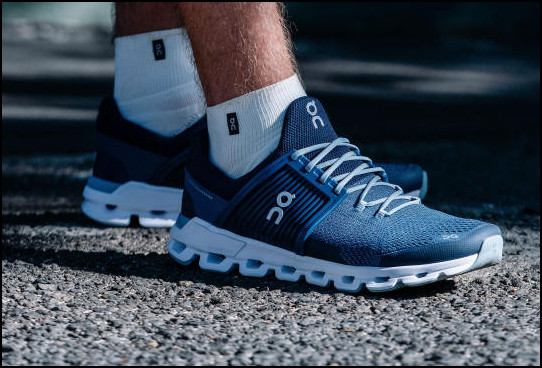
Now, let’s get back to Cloudflow.
Cloudflow 4 is a lightweight, responsive, and agile training or racing shoe for those seeking a comfortable shoe for all types of running and workouts.
Though this model is less durable and flexible than the Cloudswift, it still offers everything you need to run long miles.
Its outsole shines on urban roads even in rainy conditions.
For a better understanding, consider the following performance evaluation of Cloudswift and Cloudflow.
| Parameters | Cloudswift | Cloudflow |
|---|---|---|
| Comfort | Firm and smooth riding road shoe | Comfortable for all-around running workouts |
| Support | Moderate stability | Neutral |
| Traction | Better traction on sidewalks or pavement | Great traction on urban roads when it rains. |
| Durability | Very durable construction | Comparatively less durable |
| Breathability | The knit upper is exceedingly breathable | Average breathability |
| Flexibility | Medium flexibility | Less flexible |
In short, both shoes offer the best performance for their specific categories.
4. Cushioning and Weight
As mentioned, both shoes feature a dual-density Helion Foam as the midsole material.
But there are some differences in how they react with every stride. For instance, the cushioning of the Cloudswift 3 is a little firmer, while Cloudflow 4 has a more softer cushioning.
Cloudswift features a smooth and comfortable ride on concrete surfaces. Contrarily, Cloudflow shines in a responsive feel and absorbs the impact.
With more cushioning, the Cloudswift weighs more and is more suitable for everyday wear and conquering long miles.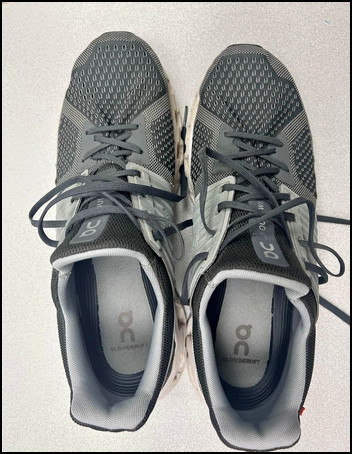
The Cloudflow is the lowest cushioned shoe from On Running.
Due to the less cushioning, Cloudflow weighs much less than Cloudswift, making it ideal for tempo runs and fast-paced activities.
If you’re looking for a maximally cushioned shoe from On Running, check out the differences between Cloudflow and Cloudflyer.
In summary, Cloudswift is more cushioned, but Cloudflow surpasses it with less weight.
5. Fit, Sizing, & Stability
Finding the best fit and appropriate size is essential to keep your feet free from injuries.
Let’s start with Cloudswift.
Cloudswift shoes are narrow in the midfoot, and the forefoot (toe box) area is comparatively wider than Cloudflow.
This shoe is available in various sizes. This model is available for US men from 7 to 14 with a half-size option. For women, available sizes are 5 to 11.
If you’ve wide feet, the Cloudswift shoes are the best choice.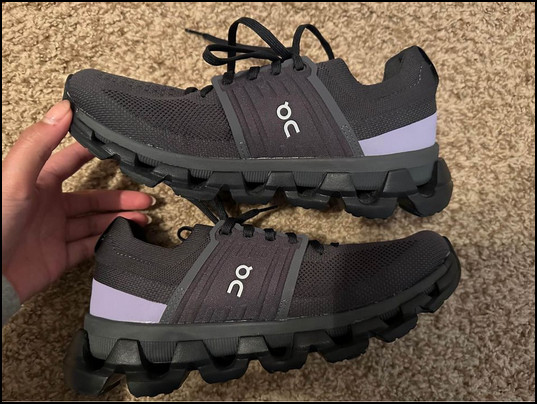
Conversely, Cloudflow has a narrow profile with a more specific sizing system. It features a snug and secure fit that feels like hugging your feet without causing discomfort.
Like the Cloudswift, this model also has 7 to 14 sizes available for men; for women, the sizes are 5 to 11, obviously, with a half-size option.
In terms of stability, none of them are stability shoes.
However, both shoes have adequate support, and you won’t face stability issues in most scenarios. But with neutral support, the Cloudswift 3 features greater stability.
In short, if you’ve wide feet and need stability, choose the wider Cloudswift 3; otherwise, go for the Cloudflow 4 for a narrow and snug fit.
6. Price and Availability
Regardless of their unique features and characteristics, both shoes are available for only $160 on On Running’s official website.
However, there are some exceptions. For instance, Cloudflow 4 (Fade | Wisteria) is listed on Amazon for $159.95 – 180.48, and Cloudswift 3 has a price point of $179.00 – 200.48.
Some other resellers also have a distinct price tag that highly depends on the size and color.
Though older versions like the original Cloudswift, Cloudswift 2, original Cloudflow, Cloudflow 2, and Cloudflow 3 are not widely available, the recent models are available on On outlets, official websites, and other shoe stores.
If you still want an older model, you can check the third-party resellers, and hopefully, you will find one.
In case you’re on a tight budget and looking for a more budget-friendly On shoe, check out the differences between Cloudflow and Cloud X.
Overall, both shoe’s prices are justifiable and are widely available in all sizes and colors.
Pros & Cons of Cloudswift and Cloudflow
Like any other prominent shoes, these shoes also have their advantages and disadvantages that you must consider before finalizing your purchasing decision.
So, let’s have a look at the following pros and cons of Cloudswift 3 and Cloudflow 4.
Cloudswift
- »Excellent cushioning and response.
- »Highly breathable upper construction.
- »Look great on the feet.
- »Very durable midsole.
- »Snappy feel and good energy return.
- »Heavier than the Cloudflow.
- »Not suitable for wider feet.
Cloudflow
- »More comfort during longer runs.
- »Durable and breathable materials.
- »Excellent rolling momentum.
- »Closed channel design.
- »Very lightweight & nimble.
- »Not suitable for runners who need stability.
- »Traction was lacking on affected surfaces.
Cloudswift vs Cloudflow: Which Shoe is the Perfect Match for You?
Choosing the best pair from Cloudswift and Cloudflow depends highly on your individual needs, running goals, and style preferences.
If you prioritize firmer cushioning, durability, and responsiveness for various paces or tempo runs and speedwork, the Cloudswift is the best pick, thanks to its dual-density Helion foam.
Moreover, consider the Cloudswift for gym sessions, everyday wear, short runs, and improved arch support.
Conversely, if you’re seeking a lightweight road running shoe with firmer cushioning and a snug and secure fit, go for the Cloudflow.
The Cloudflow shines in running long distances (even in hot weather), cross-training, tempo runs, and slower paces.
Frequently Asked Questions
How do Cloudswift and Cloudflow fit?
Usually, both shoes are true-to-size, meaning you can choose your regular size for both lineups. However, the Cloudflow shoes are a little narrow in the midfoot area. So, consider going a half size up while buying Cloudflow if you’ve wide feet.
What is the average lifespan of Cloudflow and Cloudswift shoes?
Both Cloudflow and Cloudswift feature high-grade materials that can last longer than most materials of other shoe brands. The Cloudswift and Cloudflow shoes usually last around 300-400 miles if handled carefully.
What are Cloudswift shoes suitable for?
The Cloudswift suits all level runners, including neutral and forward-rolling racers. The improved Cloudswift is the best and most trusted companion for your diverse running needs, from gym sessions to short runs.
What are Cloudflow shoes good for?
The Cloudflow is a lightweight trainer and running shoe highly suitable for various workouts, tempo runs, and potential racing. This pair is great for middle-distance races and frequently paced parkruns.
Do podiatrists recommend On Cloud shoes?
Yes, podiatrists around the globe often recommend On Cloud shoes due to their perfect balance of cushioning and support. On’s neutral shoes are the top choice among podiatrists as these shoes can be used for an extended period of walking or all-day standing.

